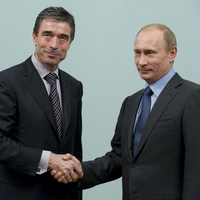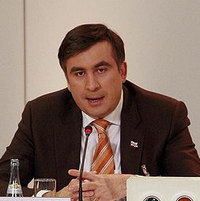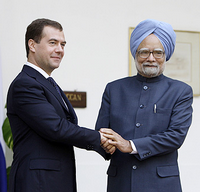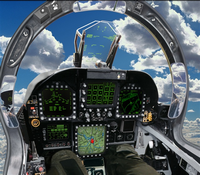In the aftermath of a trilateral German-French-Russian heads of state meeting, John Vinocur (or a headline writer at the Herald Tribune) wonders whether the U.S. is losing Europe to Russia. There are a few problems with this way of addressing this issue, not least of which is the fact that Russia is in no way capable of providing the same kind of partnership to Europe that the U.S. does. It also confuses an effort to harmonize relations with an alignment, and ignores the point of such a harmonization, which is to mitigate the significant power that Russia already exercises within […]
Russia Archive
Free Newsletter

Now that Russian President Dimity Medvedev has committed to attending next month’s NATO summit in Lisbon, allied leaders need to finalize the negotiating package they will present to the Russian government at the event. NATO and Russia agree on many important security issues, such as the need to counter maritime piracy, while they differ on others, including Medvedev’s proposed European Security Treaty and further NATO expansion. Some of their most significant disagreements lie in the realm of nonproliferation and arms control, with the three most divisive issues in this area concerning Iran’s emerging nuclear weapons capability, the alliance’s missile defense […]

TBILISI, Georgia — Turkey’s ongoing foreign-policy reorientation will not only reshape the contours of the surrounding region, but could also force the West and those hopeful of joining its orbit to consider how to position themselves in the resulting geopolitical landscape. Georgia, in particular, will be especially affected by Ankara’s emergence as a regional center of influence. In addition to proximity, Georgia shares longstanding historical ties and burgeoning trade with Turkey. Georgia’s precarious geopolitical relationship with Russia is also a significant factor driving Tbilisi’s calculations. Turkey’s rising tide has been a safe bet for Georgia so far, but future Turkish […]
Because of budgetary belt-tightening on both sides of the Channel, it’s become increasingly common to hear about the logic and necessity of defense cooperation between France and Britain. The fact that this has moved beyond the realm of wild speculation and is indeed considered imminent by most serious observers is a testament to the sea change that’s occurred, primarily in British defense thinking in a very short time. Consider that just last spring, when a U.K. Defense Ministry green paper even suggested the need for greater bilateral cooperation, it made headlines. Nevertheless, wild speculation has persisted about that cooperation, which […]

Last week India and Russia finalized plans to deliver 250 to 300 jointly developed fifth-generation fighter aircraft (FGFA) and 45 multirole transport aircraft (MTA) to India over the next decade. The Indian defense minister underlined that these would be the flagship Indo-Russian joint development projects, building on the success of the Brahmos cruise missile program as a model. Some wrinkles remain in the two countries’ defense partnership. India raised the issue of inordinate delays in the delivery of Russian defense systems, which result in considerable cost escalation. For instance, India will end up paying Russia $2.34 billion for the delivery […]
Few would have expected it to be possible a few months ago, but Kyrgyzstan managed to hold a free, fair, and surprisingly non-violent and trouble-free parliamentary election this weekend. In an assessment widely shared by regional experts, David Trilling, writing at EurasiaNet, concluded, “Kyrgyzstan’s parliamentary elections couldn’t have gone better.” Turnout exceeded 50 percent of the country’s 2.8 million eligible voters and produced sharply divided results that will force political leaders to compromise to form a coalition government. Five political parties, out of the 29 that participated, overcame the 5 percent threshold required to receive seats in the 120-member parliament. […]

When examining the effects of globalization, the international arms market presents an interesting case. It is certainly a global market in terms of distribution, with almost every country in the world, as well as many non-state actors, buying and selling weapons. And its impact is also felt throughout the world, for good as well as ill. But when it comes to the most sophisticated weapons — such as advanced warplanes, warships, tanks and missiles — that can reshape the balance of military power between important countries, the same states that have dominated the high-end of the international arms trade for […]
